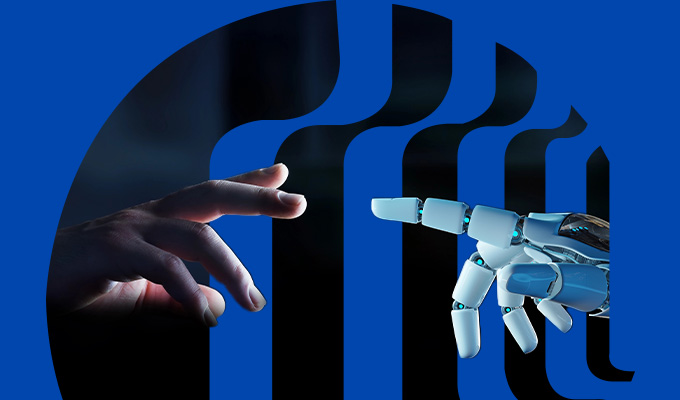Grugliasco, 20 February 2024 – A seminar was held today at the Comau site to present and discuss the projects carried out during the first year of the doctoral programmes in the field of next-generation battery production, initiated by the Politecnico di Torino and the Politecnico di Milano with the collaboration and co-financing of Comau under the European Recovery Plan.
The discussion of the projects, illustrated by the five PhD students, took place with the participation of Comau’s Global Competence Center, who supported them in their research and development work, and lecturers from the two universities.
Below we gathered the opinions of the professors to find out, through those directly involved, the benefits of a company-university collaboration and the progress of projects presented to Grugliasco.
Paolo Guglielmi, Ordinary Professor of the Department of Energy (DENERG) at the Politecnico di Torino:
The multidisciplinarity that a university can offer is certainly the plus that can be offered to the industrial world. Conversely, the needs of the Industrial world, which at this historical moment is perhaps running more than the University, bring concreteness and help to focus problems and address them from less theoretical points of view. This requires flexibility of views from both academia and industry. The ability that young people have, or must have, to adapt and understand different needs is therefore crucial. The scope of activity is cell formation with a special focus on lithium-based solutions. The main objective is to identify efficient, robust and reliable power conversion solutions that can meet all the specifics of the Forming project. We will focus on immediately feasible solutions with a strong focus on size and cost, but we will not neglect future-proof solutions.
Julia Amici, Associate Professor, Department of Applied Science and Technology of the Politecnico di Torino:
Very often in university research, we tend to study things, materials for example, on a very small scale, forgetting what is then the final application, or neglecting economic rather than practical aspects that are then fundamental at the industrial level. Working with companies in some way allows us to constantly remember these aspects and thus conduct our research in a more application-oriented way. In my opinion, these collaborations have mutual benefits for both young researchers and companies, in fact they give young researchers the opportunity to complete their training through the PhD pathway, while exploring more technical but also more applied aspects. For companies, it allows them to work on innovative ideas and eventually hire new, highly qualified staff who are already perfectly trained for their activities. Most lithium-ion cells on the market are now prepared with liquid electrolytes, which have the advantage of high performance but, on the contrary, have flammability and therefore safety problems. In this area, the purpose of our project is to replace this liquid electrolyte with a polymer gel (with a very low liquid content). Of course, the material chosen must also have a preparation method that is compatible with existing industrial production equipment, or at least involve minor changes to processes. The project is progressing well, we have identified a method of preparing the polymer gel that allows it to be obtained in dry air conditions (while most of these gels or polymers are obtained in an inert atmosphere, which is not compatible with industrial production). We then optimized the recipe to maximize performance and reduce the hassle of switching from an inert atmosphere to just dry air. We are now evaluating different solvents for the liquid phase in order to move towards a more sustainable material. Finally, during his/her six months at Comau, the PhD student will study how to integrate the preparation and deposition of this polymer gel into the lithium-ion cell production line.
Claudio Gerbaldi and Giuseppe Antonio Elia, respectively Ordinary Professor and Temporary Researcher at the Department of Applied Science and Technology of the Politecnico di Torino:
The collaboration between the university and the company represents an excellent added value for both parties. On the one hand, universities offer a rich environment of academic knowledge, advanced research resources and a network of emerging talent. On the other hand, companies bring hands-on experience, financial resources and a focused perspective on the development of technology(ies) so that they can be brought to market. This synergy creates a fertile ground for innovation and the development of solutions that can have a significant impact on society and the economy.
Companies need to support young researchers for several key reasons, including:
Innovation and Creativity: Young researchers often bring freshness of mind, creativity and boldness to tackle scientific and technological challenges. Their innovative approach can lead to groundbreaking solutions and new ideas that can help transform existing industries.
-Access to Academic Resources: Collaborating with young researchers enables companies to access high-quality academic resources, such as advanced research laboratories, specialized infrastructure and specialist knowledge in specific fields.
-Future Talent Development: investing in young researchers means contributing to the training and development of future talent. This not only ensures a constant flow of skilled skills for the company, but also contributes to the growth and development of the scientific community as a whole.
-Competitiveness in the market: companies supporting academic research demonstrate a commitment to innovation and scientific excellence, thereby increasing their reputation and competitiveness in the market. In addition, collaboration with prestigious universities can facilitate access to public funding and new business opportunities.
In conclusion, collaboration between university and business and support for young researchers is key to stimulating innovation, promoting economic development and addressing global challenges. Companies that invest in emerging talent and engage in collaborative partnerships can achieve significant long-term benefits, contributing to the progress of society as a whole. Our research project focuses on the development of innovative solid-state electrolytes for lithium batteries. This area is of great importance in the field of battery technology, as solid-state electrolytes offer numerous advantages over conventional liquid electrolytes, including in particular greater safety, higher energy density and longer service life.
The main objectives of our research focus on:
-Advanced materials development: we are committed to researching and developing innovative materials for use as state-of-the-art solid-state electrolytes with a focus on ion conductivity, transport number and electrochemical stability.
-Production Optimization: we seek to optimize production processes to ensure that solid-state electrolytes are produced efficiently, sustainably and, most importantly, at an industrial scale, enabling future commercialization at scale.
-Performance characterization and evaluation: we conduct in-depth analyses and tests to evaluate the performance of solid-state electrolytes under various operating conditions, in order to better understand their chemical-physical and electrochemical behavior and identify areas for improvement.
-Our project progresses successfully thanks to the interdisciplinary experience of the research group’s members with expertise in the fields of chemistry and materials science, electrochemistry and electrochemical accumulator engineering. We use innovative approaches and advanced instrumentation to overcome technical challenges and achieve our research goals. In addition, we work with the support and collaboration of national/international academic industry experts and closely with industry partners to ensure a significant impact of our discoveries in the real world and to contribute to the advancement of lithium battery technology, thereby helping to promote a greener and more technologically advanced society.
Barbara Previtali and Demir Ali Gokhan, respectively Ordinary Professor and Associate Professor of the Department of Mechanics of the Politecnico di Milano:
The presence of a strong industrial partner allows us to explore cutting-edge technologies with a rapid industrial transfer. Comau’s support to our students goes beyond the project, as it enables them to be part of a multidisciplinary working environment that expands their network of contacts. It is also a great opportunity for young researchers to understand how to industrialize research ideas.
The impact of electrification of mobility is already being felt in our society and economy. Laser processing is a key enabler technology for sustainable e-mobility. The PhD project we are leading with Comau is helping to transfer knowledge about laser electrode cutting to the industry for next-generation batteries. Due to the rapid advances in battery and laser system technology, various combinations of materials and laser systems open up for experimentation. Our mission is to define best practices for current industry and future sustainability needs, through the establishment of objective assessment criteria.
Andrea Matta and Nicla Frigerio, respectively Ordinary Professor and Researcher at the Department of Mechanics of the Politecnico di Milano:
Collaboration between university and company is essential to balance research goals related to industry needs and scientific challenges. At the same time, it is important to ensure that research is driven by robust methodologies and advanced concepts. For young researchers, collaboration with companies not only provides a practical perspective on the industrial applications of their research, but also offers an opportunity for active involvement in the working world. Young researchers often feel motivated and valued when they see their work making a real contribution to real industrial challenges. Our research objectives focus on the production of next-generation electric vehicle batteries, addressing challenges of flexibility, production mix, speed, safety and sustainability. We are currently making positive progress thanks to an excellent collaboration with Comau. With the goal of starting the experimental phase as soon as possible, we are paying particular attention to the prototyping of critical operations in cell assembly (stacking). The project is progressing well, and we are confidently preparing for the next phase.


